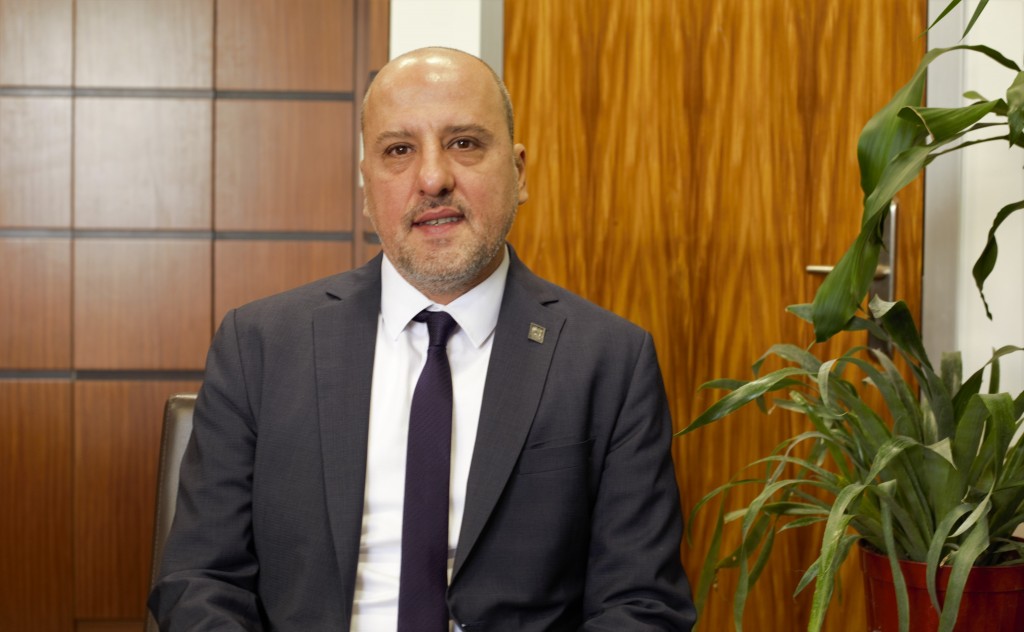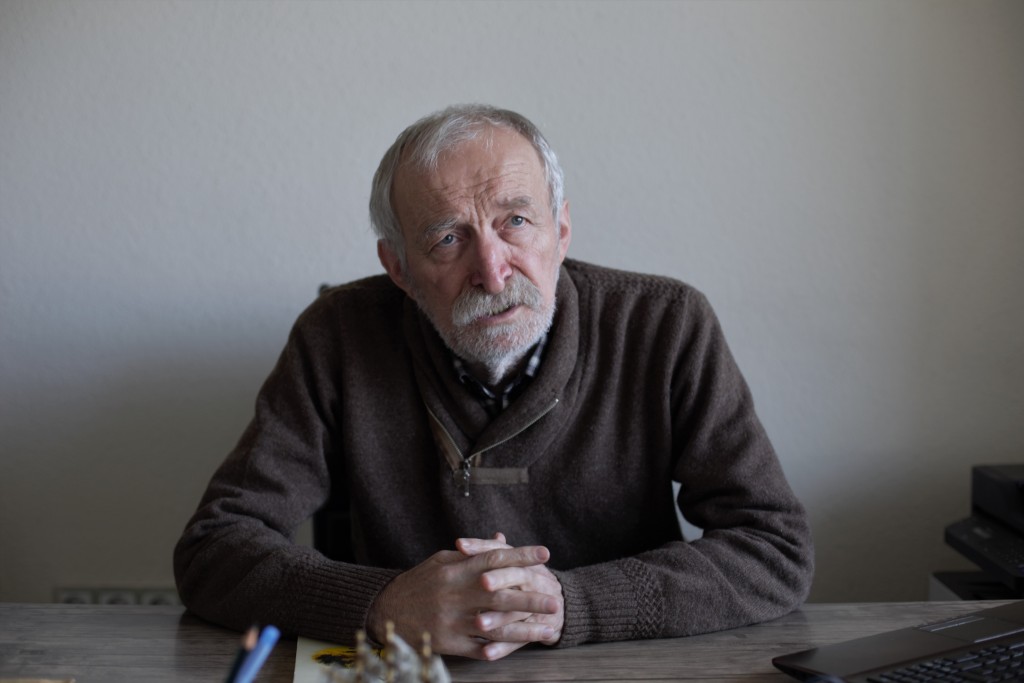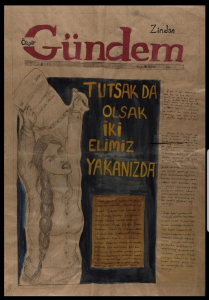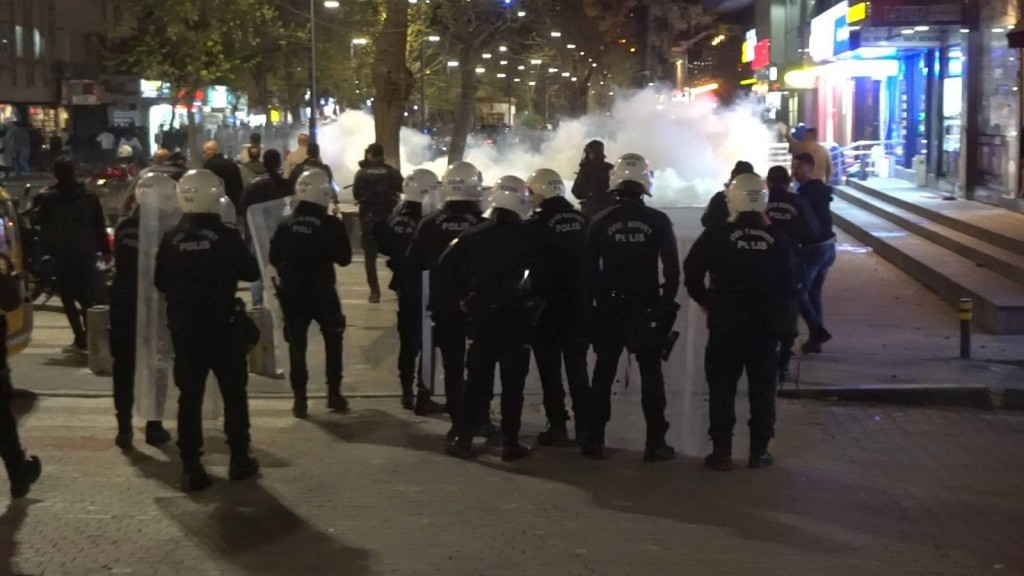The gap between the place you wake up and the place you go to sleep is what defines being a journalist in Turkey. You may wake fully motivated to report the news, only to find that that motivation has led you to prison by the evening. Like many of my colleagues, I have spent time in jail on baseless charges – 360 days in my case, to be exact. This was no surprise, because we all know what it means to be a journalist in Turkey. But the cells we were put in, instead of keeping us from our profession, in fact created a different space for our journalism. Many jailed colleagues continue to report from their cells.
But can journalists really continue reporting from prison? Is journalism possible only in the field or is reporting also possible while locked away from the public with no camera or laptop? I asked these questions first to myself and then to my once-jailed colleagues Ahmet Şık, Zehra Doğan and Hüseyin Aykol.
When I was first arrested, I looked for ways to continue reporting from prison, believing journalism should have no boundaries or designated places. You don’t have to dig deep for a news story in jail, where there are dozens of people arrested unlawfully. Students and academics, politicians and artists – all kinds of people are gathered here in one place full of untold human stories and rights violations. The biggest challenge is getting the story by the censor who checks your correspondence and can block your letters altogether
My first prison news story was on the health threats of the prison’s rusty tap water. I sent the story to Mezopotamya News Agency, where I used to work, in a letter that managed to evade the prison censor. The agency was able to publish the story, causing quite a sensation. The prison authorities were enraged and published a statement dismissing the news as baseless. However, such was the wider impact of the story that the authorities eventually had to admit there was a problem and announced they would replace the prison piping. Meanwhile, I was warned never to send such news stories again and the officer responsible for verifying the correspondence was moved to another division.
I was thrilled with the results and wrote many more articles after that. But do other journalists feel the same?
Ahmet Şık: ‘Even telling the story of a journalist is journalism’
I asked this question first to Ahmet Şık, a former journalist with the newspaper Cumhuriyet and now an MP for the pro-Kurdish political party HDP. Şık was arrested in 2016 over his social media posts and articles published in Cumhuriyet on charges of “denigrating the Turkish Republic, the state and its organs” and “spreading terrorist propaganda” and spent 809 days in prison.

Ahmet Şık
Şık defines journalism as “being an eye to the blind, an ear to the deaf, a voice to the mute” and responded to the question of whether journalism can be done in prison with both yes and no. “It depends on the person, the conditions and the topic”, he said. “You have very limited options in jail, but a journalist can still tackle a variety of topics. When you think of all these aspects, it is considered as journalistic activity, of course. Even a journalist writing his own story is journalism.”
The conditions in prison provided Şık with material. “The second time I was arrested I was put in isolation”, Şık recalled. “There was a time when I didn’t get water for 60 hours. After eight days, I was able to see my lawyer who reported my conditions to the media. Once this was published, the prison head came with books in his hand and transferred me to the dormitory. I did a type of journalism where I informed the public, which can help solve some problems. But this is highly dependent on the conditions. Many journalists are jailed but are labelled as ‘non-journalist’ and prevented from working. I believe I was a bit ‘privileged’ and I didn’t see a big interference with my articles in prison, but when you look at it, [my writing] could have led to ‘disciplinary action’, too.”
Şık criticized free journalists for not doing their jobs properly, saying: “Jailed journalists are in prison because they did journalism. Journalists outside must maintain good work and not act as if they are already imprisoned. What determines the status of press freedom in Turkey is the number of jailed journalists. And Turkey is the leader. This makes us pessimistic, but it gives me some hope, too. Despite all the oppression and fascism, it shows there are a number of people who insist on doing their jobs. There are still journalists in Turkey that do not obey the current order.”
Zehra Doğan: ‘A journalist must continue reporting wherever she is’
In 2017, journalist and painter Zehra Doğan was sentenced to two years, nine months and 22 days in prison on “spreading terrorist propaganda” for her social media posts and drawings of Nusaybin district of the southeast Turkish city of Mardin during the curfew in 2015. Doğan wrote a lot of news articles while in prison and continued her drawings. “I believe journalists turned a negative state into a positive one. Our colleague Meltem Oktay, for example, has become the voice of jailed women here through her news stories from prison”, Doğan said.
Doğan even established a newsroom inside the prison. “Many inmates already knew me when I was arrested because they had been sources for my articles”, she explained. “This time I kept writing their stories from jail. We become inmates when arrested but a journalist must continue reporting wherever she is. When Özgür Gündem was shuttered in 2016, we decided to publish our own newspaper from prison. First, we established our newsroom and assigned our roles as editor, news editor, reporter or cartoonist. We conducted a lot of interviews and case studies and when our newspaper was published outside, we got a lot of positive feedback.”
After the first edition of their newspaper was published, the prison authorities and a prosecutor searched their dormitory for a printing machine. Doğan considered the authorities’ rage a sign of their success, which motivated them to immediately start work on the second edition.
Hüseyin Aykol: ‘Even the letters you write risk another investigation against you’
At 67 years old and with 45 years of experience in the profession and in the fight for freedom of expression, prominent journalist Hüseyin Aykol was sentenced to three years and nine months in April 2019 for “spreading terrorist propaganda”. Aykol underscored that many poets, writers and journalists of Turkey’s intelligentsia have experienced prison. Even under severe conditions, news production continued from prisons, he noted. “Being arrested for their journalism is proof of their real journalism and so they continue their work from prison”, Akyol said. “Yet the conditions have also changed in recent years. Journalists used to stay in crowded dormitories giving access to a vast arrange of human stories. Today, however, journalists are often placed in isolation or in three-person cells which limits their sources of news.”

Hüseyin Aykol
Aykol stressed the difficulty of sending articles out of prison, noting that letters were often held for days “under examination”. “Even the letter you wrote risked causing another investigation to be opened against you.”
Now, he said, “I announced through my lawyers that I would keep up my journalistic work from prison. I have received many letters from other inmates about their prison conditions and problems they face which I have reported on. You try your best to be their voice. Journalism needs bearing moral compass, and this is exactly why colleagues in prison continue their work.”
According to the International Press Institute (IPI), there are over 100 journalists in prison in Turkey. Many journalists imprisoned continue to report from their cells to voice rights violations and human stories despite the severe conditions. Let’s not forget that these journalists will welcome in the New Year from prison. The least we can do is to show solidarity and send them a letter as we enter 2020.






